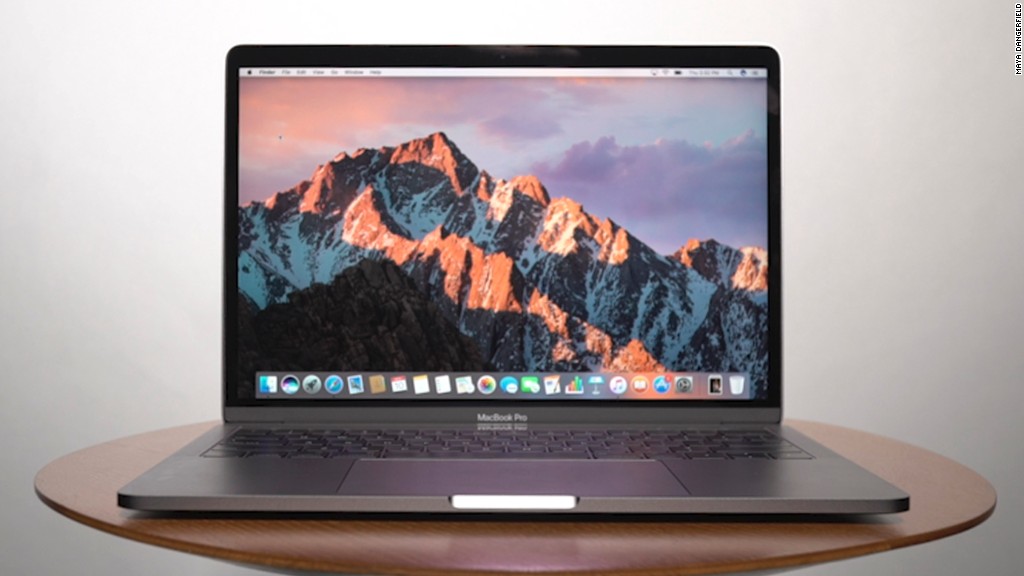
Apple has successfully removed a stain on the reputation of one of its biggest new products.
Consumer Reports said Thursday it can now recommend Apple's flashy new MacBook Pro laptops after having previously refused to do so over concerns about inconsistent battery life.
Apple (AAPL) worked with Consumer Reports over the holidays to analyze the battery tests and find a fix in response to the influential product reviewer's criticisms.
Apple said in a statement this week that Consumer Reports was using a "hidden Safari setting," which "triggered an obscure and intermittent bug reloading icons." That apparently "created inconsistent results in their lab."
Related: Apple unveils MacBook Pro with touch bar on top of keyboard
"Consumer Reports has now finished retesting the battery life on Apple's new MacBook Pro laptops, and our results show that a software update released by Apple on January 9 fixed problems we'd encountered in earlier testing," the publication wrote on Thursday.
In Consumer Reports' original tests, the average battery life for MacBook Pros ranged from 3.75 hours to 19.5 hours. After the fix, the average battery life ranged from 15.75 hours to 18.75 hours.
The computers' most notable new feature is the Touch Bar, a touch-sensitive strip above the keyboard that changes functions based on the software running on screen.
Consumer Reports and Apple have a checkered history. The magazine notoriously failed to recommend the iPhone 4 for its "antennagate" signal issues, even though it rated the phone higher than any other smartphone on the market.
That led to a crabby Steve Jobs giving a press conference, announcing that Apple would give every iPhone 4 customer a free case.
But Consumer Reports was the first major publication to throw cold water on Apple's "bendgate" phone cracking controversy. In lab tests, Consumer Reports found that the iPhone 6 was far more durable than YouTube videos made it appear.

